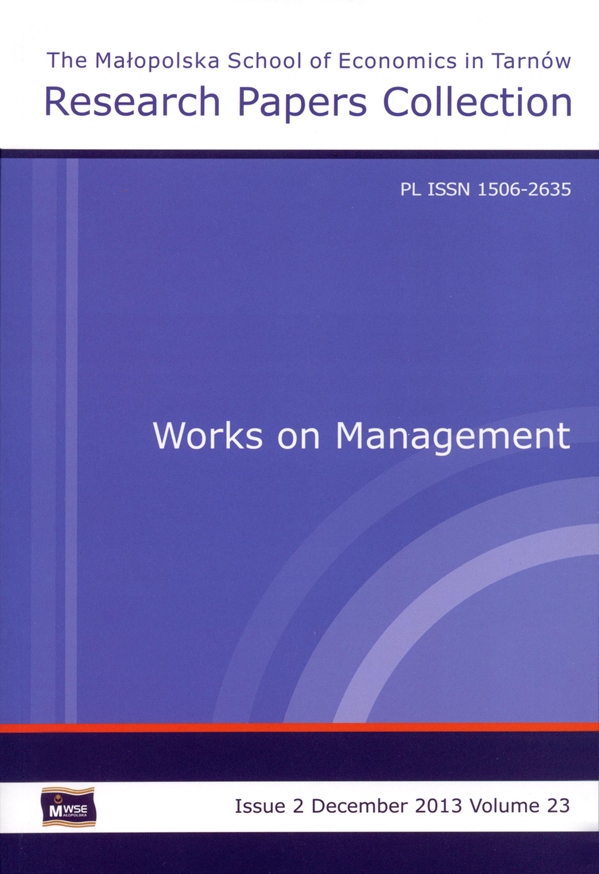Abstract
The past couple of years the tourism industry has undergone massive changes. Not only does it struggle with economic crisis, but it also had a bit of a crisis itself when online travel shops popped up. Along with these new websites came online reviews, where people could tell other people about their experiences and which are becoming more and more important in the vacation buying process, since tourists are more likely to consider buying a vacation when there are reviews available. Social media are a new form of online marketing, and recently became one of the biggest word of mouth advertisements online. In this article, the focus will be on the changes in tourism industry because of social media and online reviews, as the effect on both hotels and travel agencies from the immense changes in their industry is examined. The online reviews phenomenon has become a social convergence trend, where specialized travel websites and hotels alike increase their sociality by adopting applications which enable real-time sharing of contents among the visitors.
References
Aggarwal B. Importance of social media tracking and online reputation management [online, accessed: 2013-05-05]. Hotel Business Review. Available online: http://hotelexecutive.com/business_review/2821/importance-of-social-media-tracking-and-online-reputation-management.
View in Google Scholar
Au A. Adoption of web 2.0 by tourism businesses in NSW (Research Reports). Sydney: Tourism New South Wales, 2010.
View in Google Scholar
Bellstrom K. Travel agents are staging a comeback [online, accessed: 2013-05-11], 2007. Available online: http://www.smartmoney.com/spend/travel/travel-agents-are-staging-a-comeback-21275/.
View in Google Scholar
Booking.com. In het kort [online, accessed: 2013-05-07]. Available online: http://www.booking.com/general.nl.html?aid=357006;label=gog235jc-general-nl-XX-docscareerUopportunities-unspec-gr-com;sid=5bb4630d6e1f95bb6945c751c751dc42;dcid=1;tmpl=docs/about.
View in Google Scholar
Browning V., So K.K.F., Sparks B. “The influence of online reviews on consumers’ attributions of service quality and control for service standards in hotels”. Journal of Travel & Tourism Marketing, 2013, vol. 30, iss. 1–2, pp. 23–40.
View in Google Scholar
Buckley R., Perkins H.A., Sparks B.E. “Online travel reviews as persuasive communication: The effects of content type, source, and certification logos on consumer behaviour”. Tourism Management, 2013, vol. 39, pp. 1–9.
View in Google Scholar
Dogac A. et al. “Semantically enriched web services for the travel industry”. ACM SIGMOD Record, 2004, vol. 33, no. 3, pp. 21–27.
View in Google Scholar
Galloway L., Mochrie R.I., Deakins D. “ICT-enabled collectivity as a postitive rural business strategy”. International Journal of Entrepreneurial Behaviour & Research, 2004, vol. 10, iss. 4, pp. 247–259.
View in Google Scholar
Haenlein M., Kaplan A.M. “An empirical analysis of attitudinal and behavioral reactions toward the abandonment of unprofitable customer relationships”. Journal of Relationship Marketing, 2010, vol. 9, iss. 4, pp. 200–228.
View in Google Scholar
Jones C., Yu R. “Travel industry uses Facebook and Twitter to reach customers”. USA Today, 7.07.2010.
View in Google Scholar
Katsoni V., Dionysopoulou P. “The influence of social media (SM) & information and communication technologies (ICTs) and the creation of collaborative commerce (c-commerce) in the tourism sector”. In: Tourism trends and advances in the 21st century. 5th International Scientific Conference May 30―June 2. Rhodes: University of the Aegean, 2013, pp. 198–205.
View in Google Scholar
Katsoni V., Venetsanopoulou M. “Use of innovation systems for an effective tourism marketing development strategy”. e-Journal of Science & Technology [online, accessed: 2014-02-03], 2013, vol. 8, no. 5, pp. 33–40. Available online: http://e-jst.teiath.gr/.
View in Google Scholar
Kavoura A., Katsoni V. “From e-business to c-commerce: Collaboration and network creation for an e-marketing tourism strategy”. Tourismos: An international Multidisciplinary Journal of Tourism, Special Issue in Tourism Destination Marketing & Management, 2013, vol. 8, no. 3, pp. 113–128.
View in Google Scholar
O’Mahony M.P., Smyth B. “Learning to recommend helpful hotel reviews”. In: RecSys ‘09: Proceedings of the third ACM conference on Recommender Systems. New York: ACM, 2009. ISBN 978-1-60558-435-5.
View in Google Scholar
Pramis J. Worldwide smartphone usage will reach 1.4 billion this year [online, accessed: 2013-05-11], 2013. Available online: http://www.digitaltrends.com/mobile/worldwide-smartphone-usage-will-reach-1-4-billion-2013.
View in Google Scholar
Schegg R., Liebrich A., Scaglione M., Ahmad , S.F.S. “An exploratory field study of web 2.0 in tourism”. In: Information and communication technologies in tourism 2008. Ed. P. O’Connor, W. Höpken, U. Gretzel. Wien: Spinger, 2008, pp. 152–163. ISBN 9783211772799.
View in Google Scholar
Sharma P., Carson D., De Lacy T. “National online tourism policy initiatives for Australia”. Journal of Travel Research, 2000, vol. 39, no. 2, pp. 157–162.
View in Google Scholar
Sheldon P.J. Tourism information technology. New York: CABI Publishing, 1998. ISBN 0851991815.
View in Google Scholar
Vermeulen I.E., Seegers D. “Tried and tested: The impact of online hotel reviews on consumer consideration”. Tourism Management, 2009, vol. 30, iss. 1, pp. 123–127.
View in Google Scholar
Werthner H., Klein S. “ICT and the changing landscape of global tourism distribution”. Electronic Markets, 1999, vol. 9, no. 4, pp. 256–262.
View in Google Scholar
Wikipedia, Expedia, Inc. [online, accessed: 2013-05-07], 2013. Available online: http://en.wikipedia.org/wiki/Expedia,_Inc.
View in Google Scholar
© Copyright by Małopolska School of Economics in Tarnów. The articles are available under the Creative Commons Attribution NonCommercial-NoDerivatives 4.0 International License


